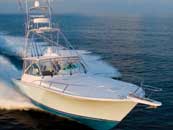By design, boats are supposed to spend their lives in the water, exposed to the elements, suffering quietly without complaint. But being the doting boat owners that we are, we must take it upon ourselves to protect our loyal vessels from the tolls of time and tide.
Of all the tortures that your boat endures, corrosion (in one form or another) is close to the top of the list of things that’ll send a boat into early retirement.
The term “corrosion”, in this context, refers to the degradation of a surface from the effects of airborne and waterborne contaminants, as well as the potentially negative outcomes that dissimilar metals have upon one another.
To combat corrosion on our boats, we use a category of products called “corrosion inhibitors”. Corrosion inhibitors coat an object with a chemical formula to keep corrosion-causing influences from reaching the item you’re trying to protect.
For example, you might use a lubricating/rust preventative spray on metallic hinges and deck fasteners to keep them from rusting. Additionally, you’d probably want to apply a liberal coating of a silicone or wax protective lubricant to the zippers and snaps on your boat’s canvas enclosure(s) so that they work the way that they’re supposed to.
A more dramatic illustration is the links of your anchor chain. In this case, the chain is dipped in a hot zinc solution to surround the steel links with zinc coat of armor, so to speak. This process is so effective, chances are that the galvanized chain will last longer than your boat.
More behind-the-scenes corrosion inhibitors include the rust-preventative base coat, or primer that’s applied to a steel boat trailer before the final top coat gets sprayed on. Without the corrosion inhibiting primer, rust would form on the steel, causing the remaining layers of paint to peel off in a very short time.
